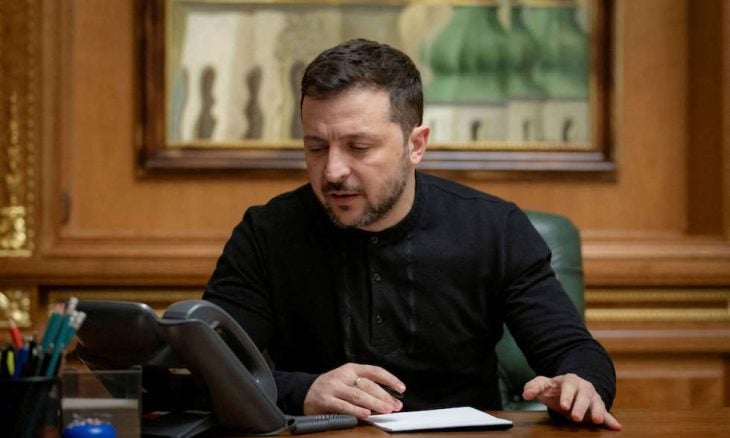Zelensky Asks Allies to Allocate 0.25% of Their GDP to Support Ukrainian Military Industry

Ukrainian President Volodymyr Zelensky has called on Western countries to allocate 0.25% of their Gross Domestic Product to support Ukraine in enhancing its military-industrial capabilities, as part of the country's efforts to boost local arms production.
A statement from the presidential office on June 21 stated that Kyiv is "in talks with Denmark, Norway, Germany, Canada, Britain, and Lithuania to launch joint production lines," with expectations of signing agreements this summer to allow the export of Ukrainian military manufacturing technologies. Zelensky emphasized that this step is part of a broader strategy to enhance industrial independence in the face of ongoing conflict.
In a related context, the U.S. Department of Defense (Pentagon) revealed its intention to reduce military aid to Ukraine in the 2026 budget, as part of what was described as a "strategic realignment." U.S. Defense Secretary Lloyd Austin explained that Washington "now prefers to seek a diplomatic resolution to the conflict," urging European NATO countries to "take on greater responsibility in deterring Russia."
The United States has provided over $66 billion in military and logistical aid to Ukraine since the start of the war in February 2022, but is now moving towards reducing this support due to "escalating tensions in the Indian and Pacific Oceans and the Middle East, and domestic spending pressures," according to official statements.
During a congressional hearing on June 10, Austin pointed to a reduction in funding for the Ukrainian Security Assistance Initiative (USAI), noting that "some of the military systems currently in use are not viable for modern battlefields." He also revealed the transfer of "20,000 anti-aircraft missiles" from Ukraine to U.S. operations in the Middle East.
While Kyiv has not issued an official response, analysts _according to a report in the Financial Times_ warned that this decision "could directly impact the Ukrainian army's ability to withstand," increasing pressure on European countries to fill the gap.
The U.S. administration affirmed that it "does not abandon support for Ukraine's sovereignty," but is reordering its priorities, expecting a heated debate in Congress on the 2026 budget, especially with the growing divide between Republicans and Democrats on continuing support.
Experts believe that Washington "is no longer willing to fund an open war in Eastern Europe without a clear end in sight," potentially opening the door to political solutions as an alternative to massive military spending.